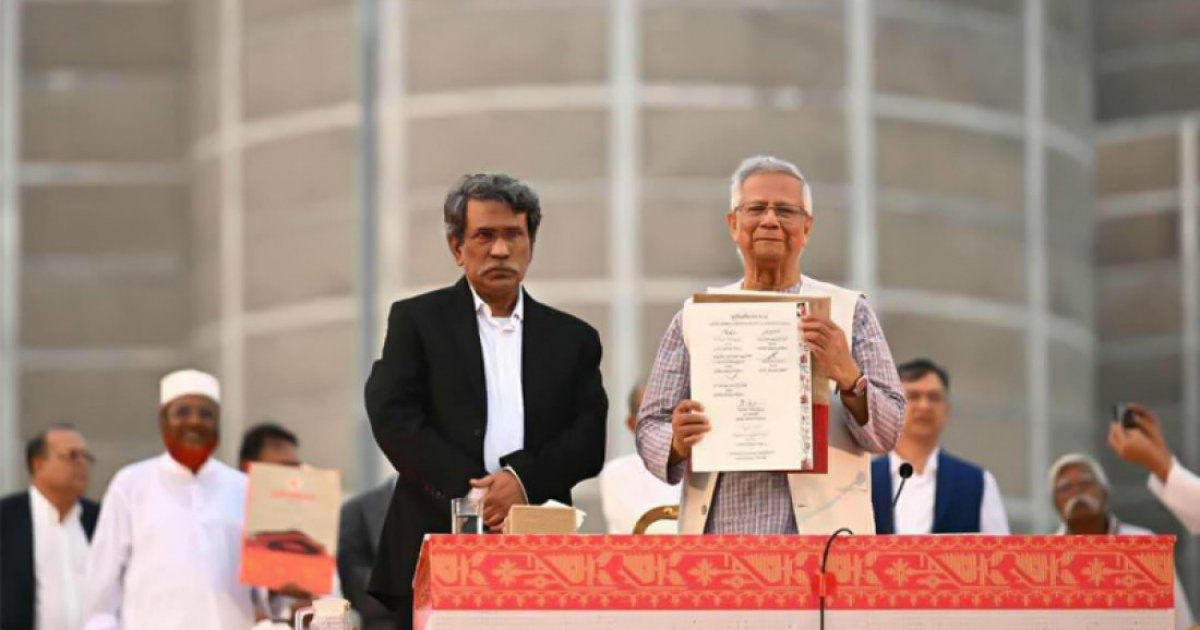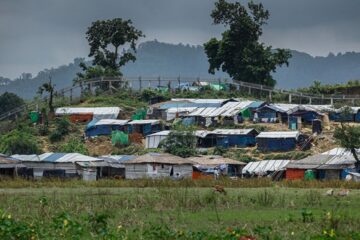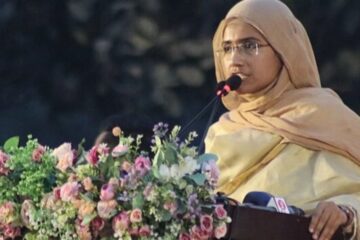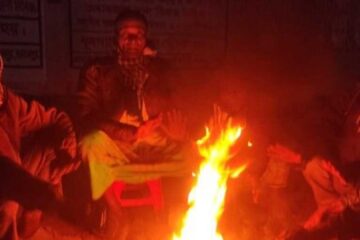The deadline for political parties to reach a consensus on how to implement the July National Charter expires on Monday, with no visible progress toward unity.
Despite a week of government appeals, major parties remain divided over when and how the proposed national referendum should take place.
The interim government had on November 3 urged political parties to present a unified position on the referendum’s timing, implementation order, and provisions for dissent within seven days.
Officials said that if no agreement was reached, Chief Adviser Dr Muhammad Yunus would take the final decision.
Sources at the Chief Adviser’s Office said preparations are already underway for issuing the July National Charter Implementation Order–2025, which could be finalized by mid-month.
The draft may be placed before Thursday’s meeting of the Advisory Council, where the chief adviser is expected to set the referendum date.
Parties hold firm
The BNP has reiterated its demand for a referendum on election day, with an option to record “notes of dissent” on individual reform proposals.
In contrast, Jamaat-e-Islami, the National Citizens’ Party (NCP), and several smaller parties have urged the government to hold the referendum before the election and without dissent provisions.
BNP Standing Committee member Salahuddin Ahmed criticized the seven-day deadline, calling it “unconstitutional.”
He said: “You (the government) have no authority to dictate deadlines or make unilateral decisions. Dialogue must happen directly with the interim administration, not through intermediaries.”
Speaking in Thakurgaon on Sunday, BNP Secretary General Mirza Fakhrul Islam Alamgir said: “The public does not understand these crises that have been manufactured. They only want to vote. The referendum will take place on election day. We will accept all reforms that serve the public, and others can be debated in parliament.”
Jamaat and its allies, meanwhile, are organizing a major rally in Dhaka on Tuesday to press for rapid implementation of the July Charter.
Jamaat Assistant Secretary General Hamidur Rahman Azad said his party had reached out to BNP for talks but received no response.
“This culture of refusing dialogue must end,” he said, adding that Jamaat’s campaign is “democratic and lawful.”
Govt and the draft
The National Consensus Commission (NCC) submitted two versions of the draft charter order on October 28.
The proposed framework outlines 48 constitutional reforms, including the creation of an upper house elected through proportional representation.
Under the NCC plan, a single-question referendum would be held to seek public approval.
The next parliament, sitting as a Constitutional Reform Council, would have 270 days to endorse the amendments, failing which they would automatically be incorporated into the Constitution.
While the NCC advised including a note of dissent, it was omitted from the draft schedule now under review by the government.
No breakthrough in talks
Efforts by the Ganatantra Mancha and several smaller parties to bridge differences between BNP and Jamaat have yielded no results.
Saiful Haque, general secretary of the Biplobi Workers Party, said: “BNP has taken a firm stance, while Jamaat is playing both sides. The government and the Consensus Commission share responsibility for this deadlock.”
He warned that continued inaction could escalate tensions: “If the government does not take strong measures to resolve the crisis, political conflict may intensify and the situation could spiral out of control.”
If no breakthrough emerges by Monday night, the government is expected to finalize the Implementation Order–2025 independently, paving the way for a referendum later this month or alongside the election.



